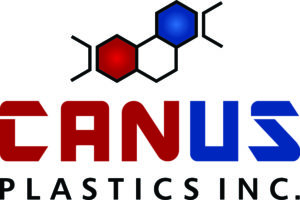The Power of Plastic Adhesives: Selecting the Right Bonding Solution for Your Project

As experts in plastic fabrication, we recognize that achieving a strong, durable bond is crucial in the manufacturing process, ensuring the longevity and performance of the final product. With a multitude of bonding techniques available, selecting the appropriate method that caters to specific project needs requires expertise and understanding. Among these techniques, plastic adhesives stand out as a popular, versatile solution used in a diverse array of applications, including COVID-19 countermeasures, safety and security products, marketing and display cases, podiums, election boxes, windshields, tables, and benches.
Plastic adhesives are specially formulated compounds designed to create strong bonds between plastic materials. They offer numerous benefits, such as high resistance to chemicals, temperature fluctuations, and UV radiation. Their ability to provide fast and effective bonding, even on irregular surfaces, makes them an appealing choice for many fabricating scenarios. As a leading provider of quality plastic products in the Ottawa area, we are passionate about guiding clients through the process of selecting the perfect adhesive solution for their unique project requirements, ensuring optimal results.
So, let’s examine the science behind plastic adhesives, exploring their advantages, limitations, and various types. We’ll discuss the factors and challenges to consider when selecting the ideal adhesive for a project and provide tips for achieving successful bonding. Join us as we dive into the fascinating world of plastic adhesives, equipping you with the knowledge and confidence to choose the right bonding solution for your next plastic fabrication project.
The Power of Plastic Adhesives: Selecting the Right Bonding Solution for Your Project
Benefits of Plastic Adhesives in Fabrication
Plastic adhesives offer a range of unique benefits in the fabrication process, making them a valuable asset for various applications. Some of these advantages include:
- Strength and Durability: Specially formulated plastic adhesives create strong, long-lasting bonds designed to withstand a multitude of environmental and physical stressors, ensuring product longevity and reliability.
- Versatility: With numerous adhesive types and formulations available, plastic adhesives can effectively bond a wide range of materials and cater to different project requirements, from lightweight to heavy-duty applications.
- Speed and Efficiency: Many plastic adhesives offer rapid curing times and easy application methods, significantly reducing bonding time and allowing for efficient project completion.
- Aesthetics: By providing invisible seams and avoiding the use of mechanical fasteners, plastic adhesives can enhance the overall appearance and design of the bonded product, creating a seamless and visually appealing finish.
Types of Plastic Adhesives
Understanding the diverse range of plastic adhesive options available is essential when choosing an appropriate solution for a specific application. Here are some common types of plastic adhesives:
- Cyanoacrylates: Commonly referred to as “superglues,” cyanoacrylates form powerful bonds in seconds and work well with a variety of plastics. However, they are not ideal for applications involving exposure to moisture or extreme temperature fluctuations.
- Epoxy Resins: These two-component adhesives create long-lasting, robust bonds with exceptional resistance to chemicals and temperature variations. Epoxy resins are suitable for bonding dissimilar materials and are available in different formulations and cure times.
- Polyurethane Adhesives: Known for their flexibility and impact resistance, polyurethane adhesives can bond a wide range of plastics and offer excellent weatherability and durability. They can also be either rigid or flexible, depending on the formulation.
- Acrylic Adhesives: Acrylic adhesives provide strong, resilient bonds with fast cure times and high-temperature resistance. They are well-suited for bonding difficult-to-adhere plastics and can tolerate exposure to chemicals and UV radiation.
Factors to Consider When Choosing a Plastic Adhesive
To ensure a successful outcome when using plastic adhesives, it is crucial to take into account certain factors before selecting the appropriate product:
- Material Compatibility: Consider the properties of the plastics being bonded, such as surface energy, chemical composition, and flexibility, and select an adhesive that is compatible with the specific materials.
- Bonding Requirements: Assess the project’s bonding needs, such as joint strength, load distribution, and impact resistance, and choose an adhesive that fulfills these requirements.
- Operating Environment: Evaluate the intended operating environment of the bonded product, taking into account factors like temperature, humidity, and chemical exposure. Opt for a plastic adhesive that can withstand the conditions typical of the product’s operating environment.
- Production Process: Consider the impact of the adhesive on the overall production process, including application methods, curing times, and equipment requirements, to ensure a streamlined and efficient workflow.
Challenges and Tips for Successful Plastic Adhesive Bonding
Despite their numerous benefits, working with plastic adhesives can present challenges. To overcome these obstacles and achieve successful bonding, follow these tips:
- Surface Preparation: Prioritize proper surface preparation and cleaning, as contaminants like oil or dirt can compromise the adhesive bond. Techniques such as solvent wiping or abrasive cleaning may be employed to ensure a clean bonding surface.
- Adequate Bonding Pressure: Apply sufficient pressure during the bonding process to ensure solid contact between the adhesive and the plastic materials, promoting a strong, reliable bond.
- Curing Time and Conditions: Respect the recommended curing times and conditions specified by the adhesive manufacturer, as deviations can lead to compromised bond strength and performance.
- Proper Storage and Handling: Store and handle adhesives according to the manufacturer’s guidelines, maintaining optimal shelf life and product performance.
Unlocking the Potential of Plastic Adhesives for Your Fabrication Projects
Plastic adhesives are a versatile and powerful solution for bonding a diverse array of materials in various applications. Armed with the knowledge of the different types of adhesives, their benefits, and essential factors to consider, you can confidently select the perfect bonding solution for your plastic fabrication project.
As one of the most trusted plastic suppliers in Ottawa, we at Canus Plastics Inc. are eager to assist you regarding plastic adhesives and help you achieve success in your fabrication endeavours. Reach out to us today, and let us provide expert guidance and support for all your plastic adhesive bonding needs.

